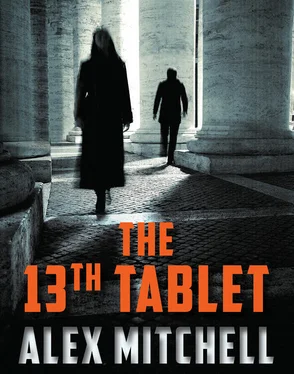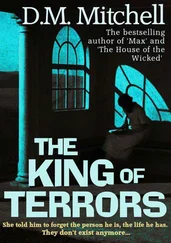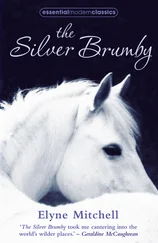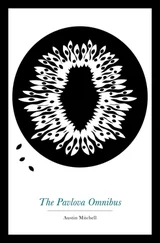‘That’s some holiday.’
She pretended not to have heard his joke and continued.
‘Well, although he wrote a lot, and his Book of Travels is a very learned account of the socio-political world of his time, he was nevertheless a merchant and as such, spent a long time in Baghdad, which was a thriving and opulent Jewish centre.’
‘OK. So the man was a clever merchant.’
‘Are you going to interrupt me all the time?’ asked Mina.
‘No no, just get to the point.’
‘Fine. His writings were already disseminated in his lifetime but proper publications and most translations date from the 16th century onwards. The original and oldest manuscripts date back to the 12th century and are in the British Library, and the libraries of Rome, Vienna and Oxford. The British Library’s manuscript is the finest of them all, and the purest.
‘The purest?’ asked Jack, desperately trying to keep up with Mina’s account.
‘Yes, the other manuscripts contain pieces inserted by other writers. The British Library manuscript is bound with very few other works. Anyway, when I accessed it at the British Library for research, I noticed in the catalogue that there was another manuscript with the same number, 27.089.’
‘You actually remember accession numbers of manuscripts?’
Of course I do. I only worked on a few manuscripts by Tudela. I asked the librarian about this, he checked and said I had misread the number, which was actually 27.089bis. It was a sort of adjunct manuscript, a bundle of pages with Arabic poems. To cut a long story short, among them I discovered unpublished travel notes written by Benjamin of Tudela himself.’
‘Can we call him Benny? I’m not an academic.’
‘No we can’t. Don’t you respect anything?’ she replied, irritated.
‘Yes. You.’
She smiled and pulled her pocket computer out of her bag.
‘Here’s my rough translation of his travel notes: Free at last. This morning I took my first deep breath since that fated day in Nineveh. Who would have thought that keeping this secret would burden me more than my travel bags? Maybe I should not have read what I read; maybe I should have tried to turn my gaze away. Who knows? I have sent a letter to my dear friend Mordechai in Safed explaining my findings in the old synagogue in Nineveh. Maybe he will choose to pursue this quest. He is young, vigorous and learned. I am too tired to pursue anything but my young nephews who like to play hide-and-seek among the orange trees in our orchard. I will leave it to Mordechai and others to find out whether it is true or not. If it is, and the object is indeed found, it will be of the greatest importance not only for Jews, but for all mankind.’
‘Wow. What a story!’ Jack exclaimed. ‘Couldn’t you have begun with this? Which synagogue was it? I mean, where in Mosul?’
‘He describes a number of synagogues. Let me check the notes I’ve got on here.’
She searched for the right document on her pocket computer, ‘Here’s the passage, Travels 118–120:
It is a very large and ancient city, situated on the river Tigris, and is connected with Nineveh by means of a bridge. Nineveh is in ruins, but amid the ruins there are villages and hamlets, and the extent of the city may be determined by the walls, which extend forty parasangs to the city of Irbil. The city of Nineveh is on the river Tigris. In the city of Mosul is the synagogue of Obadiah, built by Jonah; and also the synagogue of Nahum the Elkoshite.’
‘So, which one is it?’ asked Jack impatiently.
‘I think it’s Jonah’s synagogue as it would have been the older of the two, but who knows? What’s really important is that we just stepped on the ruins of an old place of Jewish worship that corresponds to Tudela’s description of ancient synagogues and that this is where my weird tablet comes from.’
‘I’m sorry, why would Jonah’s synagogue have been the older one?’ asked Jack.
‘He was an important figure in Mosul.’
‘Wait, you mean the Jonah? The one who refused to do God’s work and ended up in a whale?’
‘The very same,’ she answered. ‘Jonah is still revered by Muslims in Mosul. Anyway, his “synagogue” was bombed by our fellow Americans’.
It was early evening when Jack drove Mina back to her flat. She invited him upstairs to freshen up before going out to dinner. As they climbed the stairs, Jack dropped his shoulder bag, spilling most of the contents and sending all manner of things tumbling down the stairs. Mina bent down to help him. ‘No, don’t worry about this,’ he said, collecting up the bits and pieces, ‘You head on up, I’ll be there in a minute or two.’
Mina was actually grateful, as it would give her just enough time to tidy up a few things in her flat. Jack had never been to her place and she did not want him to think she was a messy academic.
Mina stepped into her living room. It was completely dark. She always closed the shutters against the fierce Iraqi sun, but she didn’t recall closing them this tightly. The air was stuffy and she couldn’t see a thing. She flipped the light switch but nothing happened. She was about to try again when she heard a slight shuffling sound to her right.
‘ Hal honaka ahad? Is anybody there?’ she asked hesitantly. A second or two passed but no answer came back. Suddenly someone yanked her arms backwards and bound her wrists behind her with cable ties. She heard the zipping sound of the ties tightening around her wrists, before another person pulled a large plastic freezer bag over her head and held it tightly round the base of her neck.
Panicking, Mina gulped a breath which emptied the bag of the little oxygen it held and left her gasping for air. She started choking, sucking the plastic deep into her mouth. She fell to her knees.
As she felt her mind fogging she heard the creaking sound of the shutters being opened slightly. In a blur she could make out three men in dark clothing, towering over her. One of the men bent down and yanked the bag from her head. She gasped for air, breathing so deeply she thought her lungs would explode. She burst into tears and shook violently, the body’s natural response when given another shot at life.
The men didn’t give her any time to think. They pulled her to her feet and roughly flung her on a chair. One man stepped up to her, bending low to stare into her tear-filled eyes and said in a cold voice, ‘Miss Osman?’
Mina didn’t reply.
‘Miss Osman, you don’t know us, but we know everything about you. Do you understand?’
‘Yes,’ she whispered.
‘Good,’ he replied slowly, ‘so where is it?’
‘Where is what?’
‘Wrong answer,’ he said and turned to one of the other men, ‘You, the bag!’
‘Please,’ Mina begged him frantically, ‘don’t torture me! What do you want? I don’t know anything…’ She stopped talking abruptly when she saw her interrogator bringing a sharp knife towards her throat. It glinted in a single beam of sunlight peeking through the shutters.
He held the sharp edge of the knife under her ear and said, ‘The tablet, Miss Osman, where is it?’
That’s what they were after, Hassan’s tablet? It couldn’t be. This was insane.
‘So?’ He asked, slowly pushing the blade against her skin below her ear until she felt it cut through. Pain flashed through her and she felt warm blood trickling down her neck. Instinctively she tried to bring a hand up to stem the bleeding but shet was still tied up. She was utterly helpless and screamed, ‘Please don’t hurt me! The tablet is in my rucksack.’
He pulled the knife away and turned to the other man, ‘Pass me the bag.’
Taking the bag, he turned back to Mina and with a sinister smile across his face said, ‘We wouldn’t want to leave any traces, would we?’
Читать дальше












